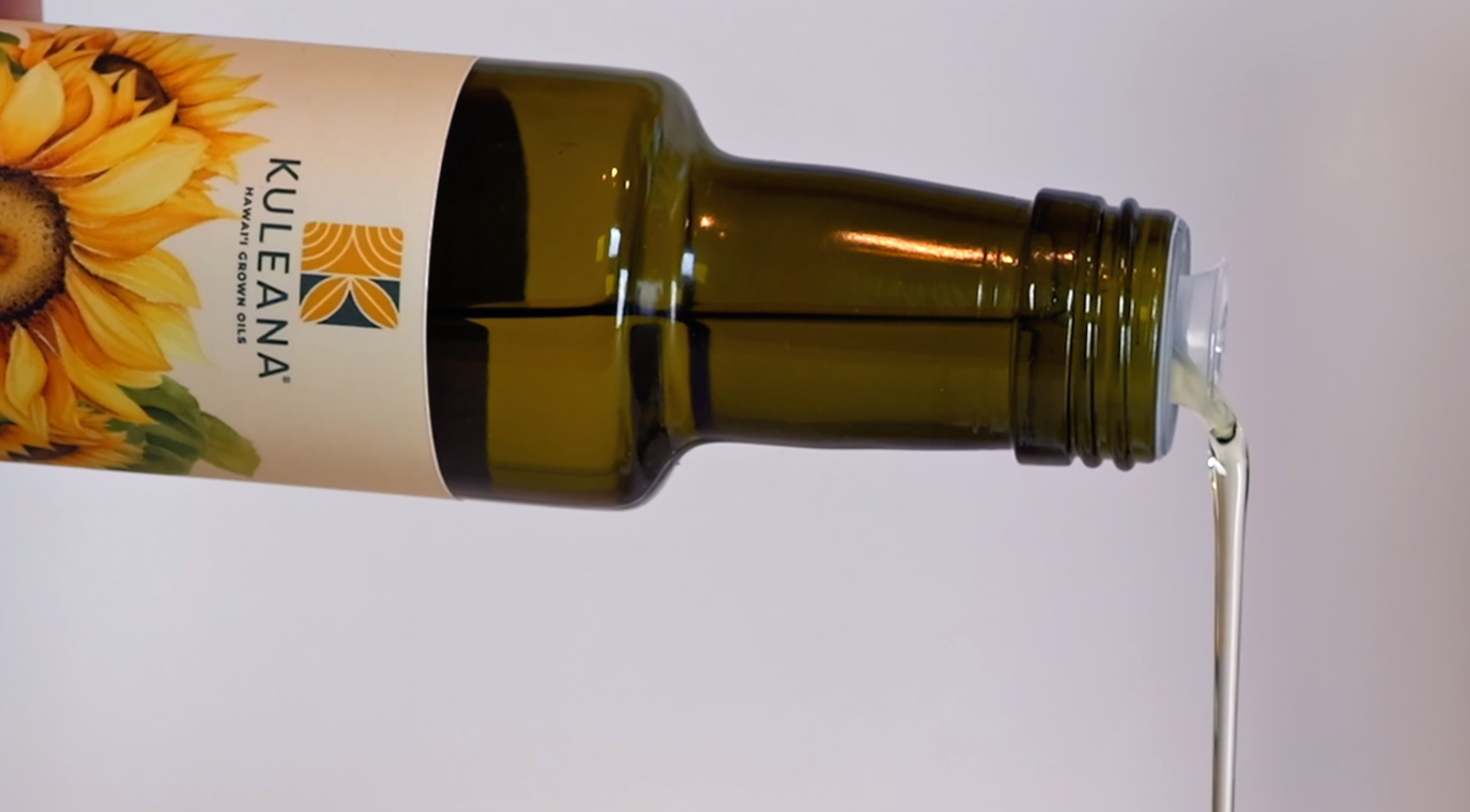Article: Seed Oil Truths

Seed Oil Truths
Seed oils—and sunflower oil in particular—are not inherently unhealthy
There’s been a lot of buzz — and some confusion — about seed oils. Let’s set the record straight.
Sunflower oil offers specific, proven benefits – especially when farmed and produced using high integrity methods, like we do. Our company farms sunflowers on Maui and Kauaʻi using regenerative agriculture practices. And we mechanically crush the harvested seeds with no chemical extraction or other harsh conventional methods. The result? A golden, pure sunflower oil that’s a flavorful and healthy ingredient for your culinary creations.
We believe food should be about trust, taste, and truth. Here are some helpful facts:
- High-Oleic Is Heart Healthy. High-oleic sunflower oil – like Kuleana® Sunflower Oil – is rich in Omega 9 (Oleic acid) and is a monounsaturated fat. While heart healthy olive oil has nearly 70% Omega 9, our high-oleic sunflower oil contains nearly 88% Omega 9! The U.S. Food and Drug Administration (FDA) recognizes that high-oleic plant oils (≥70% Oleic acid) may reduce heart disease risk when used in place of fats and oils with higher levels of saturated fats.
- Expeller Pressed Matters. Our production method uses an expeller press to mechanically crush our harvested sunflower seeds, followed by mild filtering and bottling. No additives and no preservatives. Conventionally processed oils, on the other hand, are generally “refined, bleached and deodorized” (RBD) through chemical extraction, high heat and other methods to reduce flavor, eliminate aroma and extend shelf life.
- Omega 6 Myth Buster. Omega-6 fats from vegetable oils and other sources — like their cousins, the omega-3 fats from fish — are good for the heart and body. Omega 6 (Linoleic acid) helps lower harmful LDL cholesterol and boost protective HDL. They help keep blood sugar in check by improving the body's sensitivity to insulin. Research has consistently shown that "increasing dietary intake of Omega 6 does not have a significant effect on the blood concentrations of inflammatory markers). Levels of Linoleic acid in Sunflower oil (2-16%) is comparable to Avocado oil (6-20%) and Olive Oil (10-15%).
- Focus on Good Fats. Replacing “bad” fats (saturated and trans) with “good” fats (monounsaturated and polyunsaturated) is smart for your heart, according to Harvard School of Public Health. An easy way to do this is to "choose nontropical vegetable oils to cook and prepare food. These types of oils are healthier choices than solid fats, which include butter, shortening, lard and stick margarine, and tropical oils, which include palm and coconut oil. Both solid fats and tropical oils have more saturated fat than nontropical liquid fats. Foods high in good fats include vegetable oils (such as olive, canola and sunflower), nuts, seeds, and fish."
Here are several other resources worth the read:
What is High Oleic Sunflower Oil?
Seed Oils Are Under Attack, but Are They Actually Bad for You?
Cracking the Seed Oil Code: What You Should Know - Shaklee Health Resource
Selecting the Right Cooking Medium

